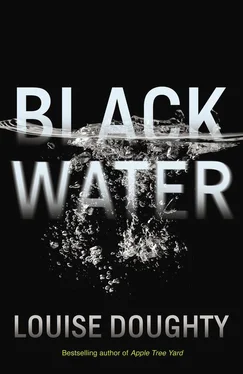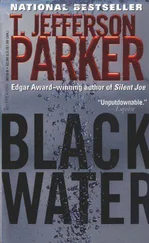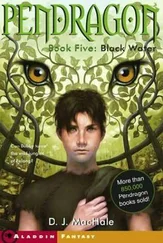Louise Doughty - Black Water
Здесь есть возможность читать онлайн «Louise Doughty - Black Water» весь текст электронной книги совершенно бесплатно (целиком полную версию без сокращений). В некоторых случаях можно слушать аудио, скачать через торрент в формате fb2 и присутствует краткое содержание. Год выпуска: 2016, Издательство: Faber & Faber, Жанр: Триллер, на английском языке. Описание произведения, (предисловие) а так же отзывы посетителей доступны на портале библиотеки ЛибКат.
- Название:Black Water
- Автор:
- Издательство:Faber & Faber
- Жанр:
- Год:2016
- ISBN:нет данных
- Рейтинг книги:5 / 5. Голосов: 1
-
Избранное:Добавить в избранное
- Отзывы:
-
Ваша оценка:
- 100
- 1
- 2
- 3
- 4
- 5
Black Water: краткое содержание, описание и аннотация
Предлагаем к чтению аннотацию, описание, краткое содержание или предисловие (зависит от того, что написал сам автор книги «Black Water»). Если вы не нашли необходимую информацию о книге — напишите в комментариях, мы постараемся отыскать её.
, a masterful thriller about espionage, love, and redemption. Harper wakes every night, terrified of the sounds outside his hut halfway up a mountain in Bali. He is afraid that his past as a mercenary has caught up with him — and that his life may now been in danger. As he waits to discover his fate, he meets Rita, a woman with her own past tragedy, and begins a passionate affair. Their relationship makes Harper realise that exile comes in many forms — but can Rita and Harper save each other while they are putting each other very much at risk?
Moving between Indonesia, the Netherlands and California, from the 1960s to the 1990s, Black Water turns around the 1965 Indonesian massacres, one of the great untold tragedies of the twentieth century.
Black Water — читать онлайн бесплатно полную книгу (весь текст) целиком
Ниже представлен текст книги, разбитый по страницам. Система сохранения места последней прочитанной страницы, позволяет с удобством читать онлайн бесплатно книгу «Black Water», без необходимости каждый раз заново искать на чём Вы остановились. Поставьте закладку, и сможете в любой момент перейти на страницу, на которой закончили чтение.
Интервал:
Закладка:
The parallel street was full, a big crowd gathered, milling, a denser patch towards a small shopping centre located to his right, on the other side of the road, on a corner. No one paid him any attention. As he pushed through, he could see that there was a thick swarm of people in front of the mall. Most of the people had their backs to him, a group intent upon something in their midst. Foreboding clutched at him, but only briefly. There was a note of hysteria in the shouts of the men and women, a rising inflection in their voices.
As he approached the group, three men on the edge of it turned. One started shouting and gesturing but the other next to him laughed and Harper laughed back, so they turned away from him again. He was tall enough to see over their heads but because the crowd was mobile, he had to shoulder his way into the midst of it. It was mostly young men, two or three young women — they didn’t look like students, though, shop assistants or factory workers, perhaps, in plastic shoes and loose, plain shirts. Above their heads, the sky was now very dark.
There was a young man sitting on the ground, in the middle of the group. He had thick straight hair that hung down over his forehead and he was light-skinned, possibly Chinese Indonesian or possibly someone who just had the bad luck to look like one. His hair was matted with blood, and blood ran down his face. His shirt was torn and he was naked from the waist down. A pair of dirty trousers lay scuffed and ripped beside him. He had his arms raised and bent above his head as if to ward off blows and one forearm was gashed and grazed. As the men around Harper fell back a little, the young man on the ground lifted his face. He looked up at Harper and his wide eyes recognised him, with a glimmer of hope and fear, as a figure of authority.
The crowd pulled back a little, looking at him, waiting for him to react. Harper knew that all he had to do was nod, and draw back, and the crowd would beat the young man to death. He estimated him to be around seventeen.
‘He’s the shop owner’s son!’ said a man on Harper’s left, defensively, angrily, although Harper had not asked for any explanation. ‘You know what they are like! This one insulted my sister!’ The man drew his foot back and aimed a kick at the young man on the ground but misjudged it and his foot swung in the air.
Harper stepped forward into the crowd in three bold, wide strides — the two people pressed either side of him fell back. He grabbed the young man by his injured arm and pulled him roughly to his feet. The young man called out in fear and pain, a high, whimpering cry. He was small and thin and as soon as Harper hauled him up, he slumped in his grasp. As he did, an older man in the crowd lifted his foot high, to thigh level, and aimed a vicious, hammer-like kick that connected with the young man’s torso just above his hip. The kick nearly knocked the young man from Harper’s hands.
He knew he had seconds. He pulled the limp young man round, away from the man who had kicked him, shouting, ‘ Ayo! Nèk wani! ’
The young man then did the right thing for the wrong reason — out of sheer panic, he started to kick at Harper, feebly. This meant Harper could pull roughly at his arm and shout at him in fury, which got the crowd’s support. A couple of them cheered.
He dragged the young man back the way he had come as fast as he could but several of the crowd followed and the road ahead was wide and clear, a row of concrete shop fronts with their shutters smashed and household goods spilling from them; plastic buckets, towels, shoes and sandals. Lying on its side in the middle of the street was a white metal object that might have been a storage chest or fridge. Broken glass surrounded it. It was a few minutes’ walk back to the side street that Harper had emerged from and there were no alleyways or small turnings down which they could escape. Harper felt the first fat drops of rain on his arms and looked up just as the grey skies above crashed open and the downpour began.
The crowd of young people shrieked and laughed at each other. The two young men on Harper’s left, who had been following them closely, ran into a looted shop for shelter, where they discovered a pile of tea trays they snatched up and held above their heads, calling out to their friends — and in the minutes this took, Harper watched until he was sure the crowd was sufficiently distracted before pulling at the unwilling young man and saying, ‘ Ayo! ’ again but this time hissing rather than shouting.
Still, the young man did not understand he was being saved. Harper had to clench his upper arm in his fist with all his strength as he dragged him along until, finally, at the end of the street he was able to turn right and shove him up against a wall and hold him there for a minute, by the shoulders, looking into his face. ‘Go home. Don’t go back that way. Do you understand?’ he said in Indonesian, but the young man seemed too shocked to comprehend and the minute Harper took his hands away from his shoulders, he reeled from him, back the way they had come.
Harper called out as the young man turned the corner — he was damned if he was going to have gone to all that effort only for him to endanger them both by running back to the crowd — and the young man stopped, staring back down the main street, then finally understood, reeled round again and, half bent double and with no acknowledgement to Harper, staggered off down the side street.
It was pouring with rain now. Harper stood for a moment, the adrenaline of the incident draining from him. Already, a small muddy river was flowing down the drain on the other side of the street. He lifted his shirt, untucked from his trousers in the chaos, and wiped his face. People would be taking shelter in the looted shops now, all but the most determined rioters that was. It should be safe to find his way back to his apartment but it would be a good idea to avoid the main streets until he was well clear of the old quarter and could find a cab. He lifted his face to the heavens, closed his eyes and opened his mouth, letting the hard raindrops fall on his tongue and sting his face. They were right to send in Henrikson, he thought, I’m too old for this.
His apartment was on the fifth floor and the lift had broken down several months ago — the maintenance company couldn’t afford the replacement parts, which were German, so it had stayed broken. He climbed the stairs slowly and by the third floor, his legs had started to shake. He paused for a moment, thinking, how hopeless. Then he thought, no, it isn’t just stairs, you’ve climbed these stairs many times without difficulty. It isn’t just the heat or humidity either — it’s the draining of the adrenaline, come on, you know this one.
His hand shook as he put the key into his apartment door. He closed it behind him and leant against it. The maid had been while he was out and the apartment was tidy, swept. The pile of books and papers he had left on the small dining table was neatened, the pens next to it laid out in a row. His legs were still trembling. How odd. And then, he was shuddering from head to foot, so much it was shaking his lungs, and he began breathing in great gulps. He had saved a boy. Without any part of his body alerting him to what was about to happen, apart from the trembling that seemed to come from everywhere and nowhere, he sank down onto the polished wooden floor, crashing onto his knees. He had saved a boy. It was a fissure. It was enough.
He crawled across the floor, ruffling the thin rug, to the cabinet — dark polished wood — where he kept the whisky. As he extracted a tumbler it slipped from his grasp and then rolled in a semi-circle by his knee. He grabbed it and threw it to one side, meaning only to remove it from his immediate vicinity because he didn’t want it but it flew across the room and smashed against a wall. He unscrewed the bottle and threw the lid in the same direction, where it landed with a tinny clatter. He drank from the bottle, long and hard, and once he had started he did not stop. It was the closeness of everything. Here he was, and the floor was polished and clean because the maid had been in while he had been out in a city in which people were being beaten, killed, and there was a television and a sofa and a fridge with food in it, and all the normal business of a normal life, and a few minutes ago he had watched a boy come close to having his life snuffed out, beaten from him — and that could happen or nearly happen, and he, Harper, could then go home and put his key in his door and have a beer, or perhaps something to eat, just like all the other people who were doing things just like that, and minutes away, the world was ending for a boy, or for another boy like him, in the most horrible way. And it wasn’t long ago or in the middle of nowhere: it was now, in one of the modern cities of the world. And all at once, he realised that what he could not stand was the closeness of everything. Yes, that was it. There would always be horrors, perhaps. Perhaps there would never be a time in human history when they would not exist because it would take so long for Homo sapiens to develop to that stage that a meteor would have wiped them all out by then, like the dinosaurs, or a freak tidal wave would have washed them all away — darkness upon earth, cold and dark, before this sick soft race worked out how to live without huge numbers of it suffering cold and hunger and humiliation in order for the lucky few to live in something approaching peace and comfort. But the closeness of it: the fact that he could walk out of his clean, white apartment again right now if he wanted and a few streets away. . and it rippled out, everywhere, beyond Jakarta, beyond Java — on Borneo the Dayaks hated the Madurese and the Madurese hated them back and why stop with these islands? They were far from unique. The Middle East — let’s not even go there — and the Pakistanis had tested those missiles and had India in their sights. And then Poppa and Nina, and Nina saying, ‘Go back upstairs, Poppa’s just clearing something off the lawn.’ And why was there something on the lawn? Oh, because Poppa’s skin was black, that was why. And then they couldn’t even walk up a path up a mountain without people staring at them and why not, not for anything you’ve done or even want to do, just because of what you are. And his mother, his mother as a slim girl, running down the road, and his father, who he had never met, killed for not wearing an armband. He saw Francisca weeping and weeping in the hospital: the face of their drowned baby, perfect in repose, mouth a little open — there had never been anything more perfect. He saw Bud’s face, lifted upwards, dreamily, skyward, and heard his own voice shouting, ‘ Bud! ’ as loud as it was possible to shout, at the same moment Bud’s eyes opened.
Читать дальшеИнтервал:
Закладка:
Похожие книги на «Black Water»
Представляем Вашему вниманию похожие книги на «Black Water» списком для выбора. Мы отобрали схожую по названию и смыслу литературу в надежде предоставить читателям больше вариантов отыскать новые, интересные, ещё непрочитанные произведения.
Обсуждение, отзывы о книге «Black Water» и просто собственные мнения читателей. Оставьте ваши комментарии, напишите, что Вы думаете о произведении, его смысле или главных героях. Укажите что конкретно понравилось, а что нет, и почему Вы так считаете.












